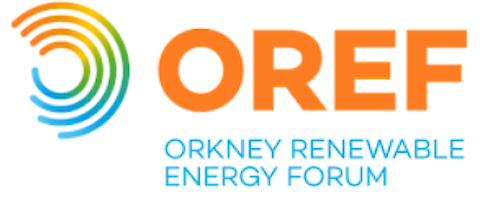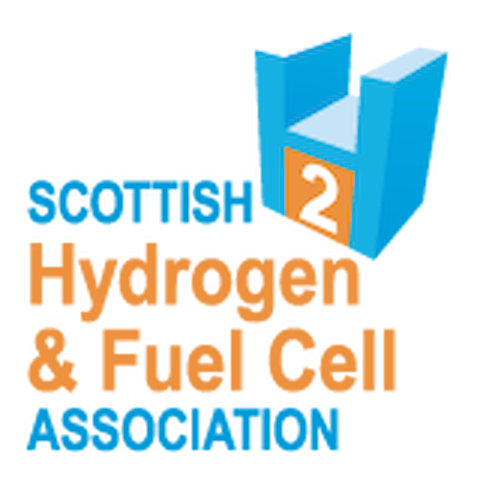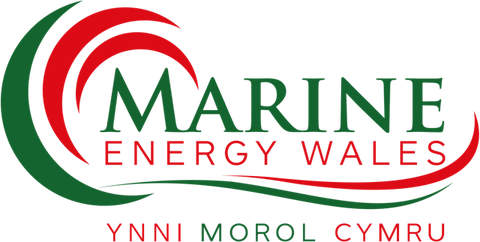New Survey Reveals Energy Cost Surge and Shifting Attitudes to Renewables in Orkney
The 2024 Orkney Household Energy Survey, developed as part of the Rural Energy Hubs project and undertaken by Aquatera Ltd, received 1,183 responses, representing around 10% of households across the county. It follows a similar 2019 survey, and provides a vital comparison of local energy use and attitudes over a five-year period marked by dramatic price rises and widespread adoption of renewables.
The 2019 survey was conducted as part of the ReFLEX Orkney project, funded by Innovate UK, who also funded the 2024 survey that was run this time through the Rural Energy Hubs project. The project partners Aquatera, The European Marine Energy Centre, Community Energy Scotland and The Orkney and Shetland Islands Councils are working to accelerate decarbonisation in remote and rural communities.
The results of the 2024 survey paint a mixed picture. While uptake of renewable technologies has increased significantly, energy affordability has become a critical issue. The number of households spending more than £2,500 a year on electricity has quadrupled since 2019, from just 7% to 31%. Heating oil and alternative fuel costs have also surged and these changes have had a huge impact on the decisions that some households have taken around energy use.
Household energy spend for 2019 and 2024
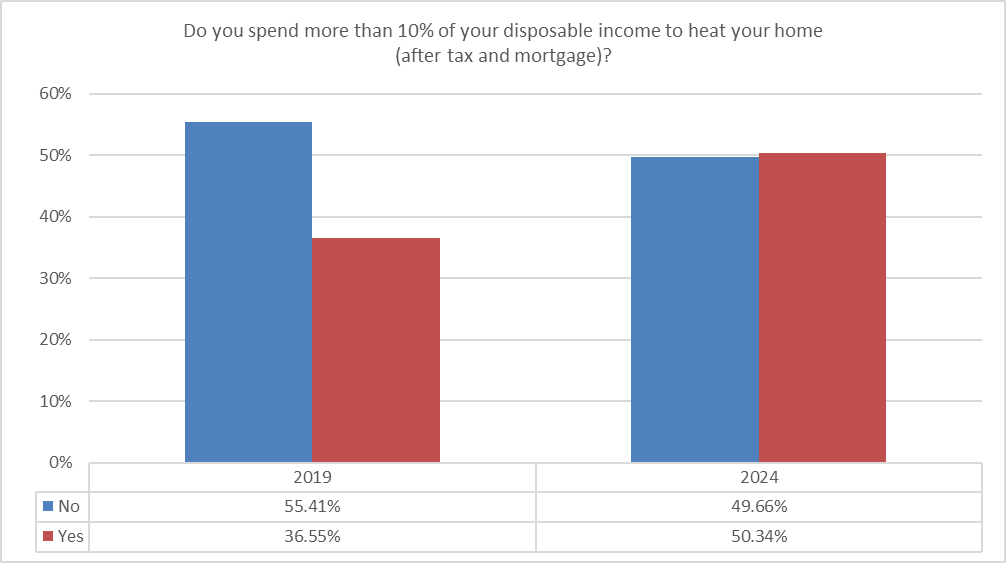
Luke Fraser, Aquatera Senior Consultant led the work on the surveys in 2019 and 2024, said:
“This data highlights how the cost-of-living crisis has and is continuing to bite hard in Orkney. Increased energy costs are pushing more households toward fuel poverty, especially in older less energy efficient properties and those that entirely rely on electricity for their household energy needs. We would like to thank the 1,183 people who took the time to complete the survey, making it possible for us to provide this analysis for the Orkney community.”
Encouragingly, the survey shows significant increases in the adoption of renewable technologies by households in Orkney. Over a third (36%) of respondents now have energy-generating technologies installed, up from 19% in 2019. Battery storage systems have seen a particularly sharp rise, from 1% to nearly 9%. Electric vehicle uptake has doubled, with 14% now owning or leasing an EV.
Preferred future heating systems for 2019 and 2024
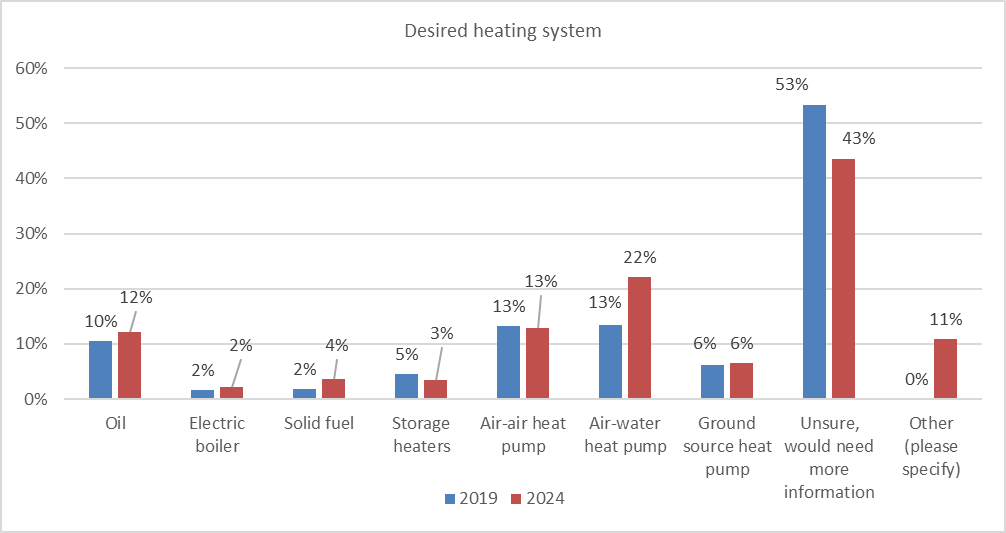
Insulation upgrades and community-owned renewable projects emerged as the most popular forms of climate action, with large-scale wind generation remaining more divisive. The survey also revealed a shift in motivations with energy security and cost savings now ranking above environmental concerns for most households.
Despite a lower response rate than in 2019, in 2024 there were 1,183 surveys completed representing more than 10% of Orkney households. The 2024 data offers valuable insights into the impacts of the cost of living crisis on households in Orkney.
The results will inform future work under the Rural Energy Hubs initiative and contribute to ongoing efforts to tackle fuel poverty, improve energy efficiency, and increase local energy resilience.
When the Orkney Household Energy Survey was first conducted in 2019 it was intended that it would provide a baseline and that the survey would be repeated in future to record changes over time, both in the facts around energy use and people’s attitudes to adopting new technologies. The Rural Energy Hubs Project, with funding from Innovate UK, was able to provide that support for the 2024 survey and it is hoped that this report will show the value in repeating the survey and thus support efforts to repeat it every five years.

